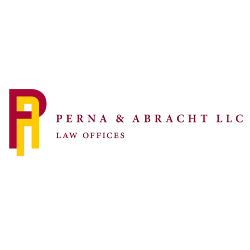
Estate planning is not something most people like to think about, but due to the COVID-19 pandemic, many are creating or updating their wills and other important documents. Although you may believe that a will is sufficient for settling your affairs, it is only one piece of the estate planning puzzle. Having a lawyer help you create the following four vital estate planning documents can ensure your rights are protected and your legacy lives on as intended.
1. Last Will & Testament
A will enables you to dictate how your property and assets will be distributed to beneficiaries following your death. It also gives you the opportunity to name an executor who will manage and settle your estate. If you have minor children or care for an adult with special needs, you can also appoint a guardian for them in your Will.
When someone dies without a Will, things can become complicated for their loved ones. The probate court will appoint an administrator to handle your estate, and may also appoint guardians for any dependents. Your assets will be distributed according to intestate succession laws, which means your property may not be distributed according to your wishes. The settling of your estate through the probate process can take significantly longer without a Will. If you already have a last Will and Testament, make sure to update it regularly, especially following divorce or the death of a spouse or other loved one.
2. Living Trust
Alternatively known either as a “Revocable Trust” or “Irrevocable Trust,” a Living Trust is a separate legal entity that is created to hold assets. Typically, this is done to prevent these assets from going through probate, to decrease tax liability, and/or for personal or family reasons. If the Living Trust is “revocable,” you can change the trust terms, transfer property in and out of the trust, or end the trust altogether while you are alive. Upon your death, the named trustee may continue to administer the assets in the trust, or terminate the trust, depending on your Trust instructions.
3. Advance Medical Directive
Also known as a living will, an “Advance Health care” Directive allows you to specify your wishes for end-of-life decisions such as CPR, life support, and organ donation. Unexpected illness or incapacitation means that your family may have to make medical decisions without knowing what you would have wanted. This can lead to unnecessary conflict and emotional distress for your loved ones, and may even result in them making decisions that do not align with your wishes and values. It also ensures that medical providers will follow your wishes in determining the kinds of medical treatment you receive. In the age of COVID-19, Advance Health Care are more important than ever.
4. Power of Attorney for Finances
Another important issue to address is who will take care of your financial matters if you become incapacitated. In a Power of Attorney for finances, you can name an agent who will handle tasks such as paying bills, managing bank and investment accounts, buying and selling real estate, stocks, bonds, and other assets, filing and paying taxes, and other financial matters. Appointing a person you trust to make these decisions is crucial. If you are uncertain about who to name as your agent, an attorney can provide an objective perspective on who may be the best person to handle your health care and/or finances if you are unable to do so.
If you need assistance with estate planning or other legal matters, click here to contact an experienced attorney and get started.
This blog was originally posted on https://www.pa4law.com/5-vital-estate-planning-documents-that-protect-your-legacy/
























